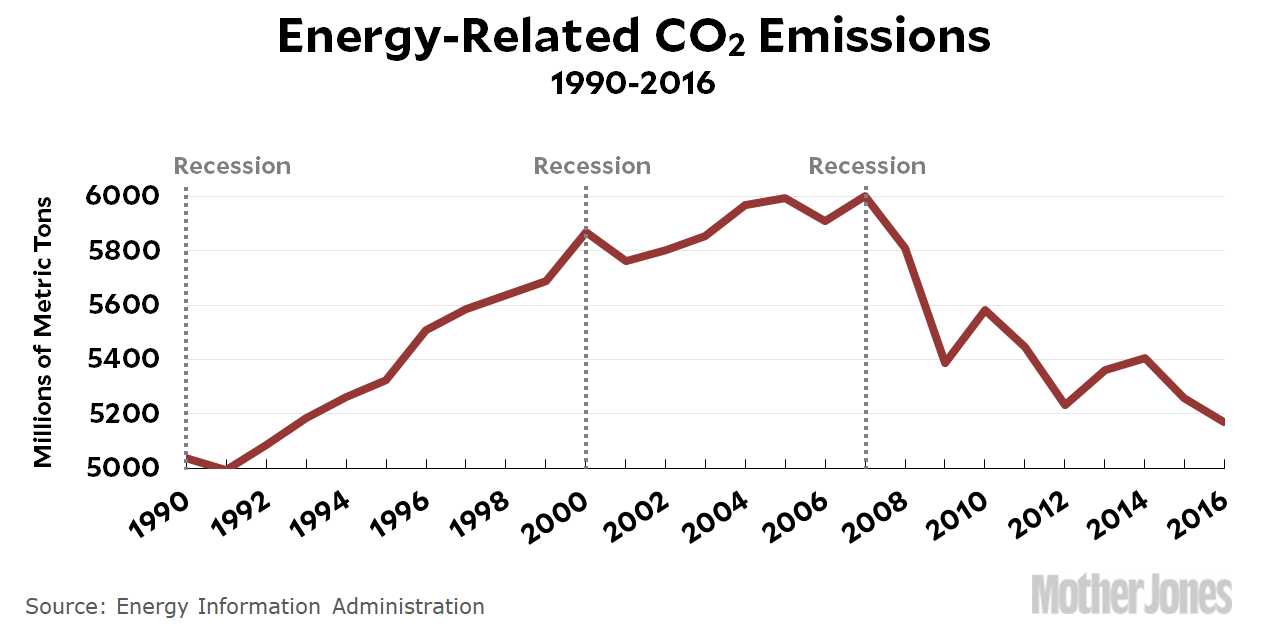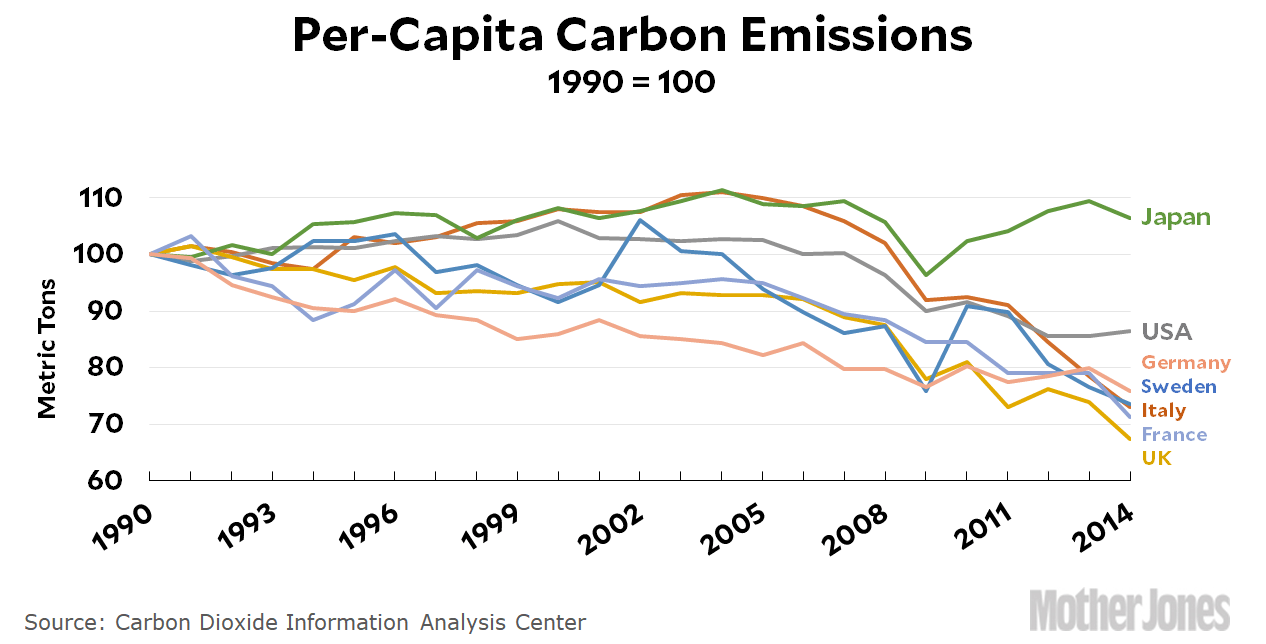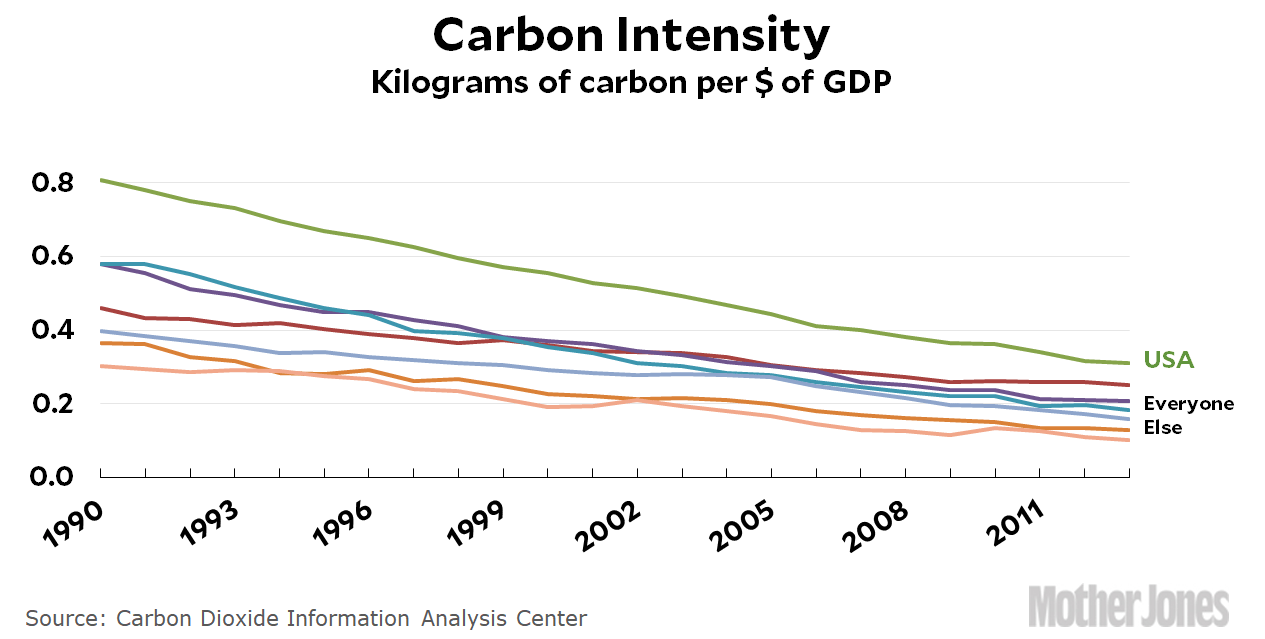Donald Trump just finished up his speech about pulling out of the Paris climate agreement, and it was garden variety Trump bluster. Other countries are playing us for a sucker. It’s already cost us ONE BILLION DOLLARS. It’s crippling the American economy. They’re all laughing at us. Etc. The usual.
I was more interested in what EPA chief Scott Pruitt had to say afterward. His remarks were a seemingly endless tribute to the amazing foresight and singular vision of Donald Trump. It was really over the top, although I don’t know how many people noticed it since Pruitt has a fairly bland speaking style. Here’s a taste:
Your decision today to exit the Paris accord reflects your unflinching commitment to put America first….fulfilling yet one more campaign promise….fortitude, courage, steadfastness….America finally has a leader who answers only to the people….fighting for the forgotten men and women across this country….champion of the hardworking citizens all across this land….historic restoration of American economic independence….it takes courage, it takes commitment to say no to the plaudits of men while doing right by the American people. You have that courage.
Mussolini could hardly ask for better. But there was a tiny bit of substance in Pruitt’s remarks. In particular, he said that America had reduced its carbon emissions by 18 percent between 2000 and 2014. That’s actually not right: emissions have gone down about 8 percent over that period. Pruitt must have been talking about per-capita emissions or something. He also said that carbon emissions were now lower than 2014 levels, and he actually got that part right. But take a look at what caused this decline:

Every time the economy goes into recession, carbon emissions decline. When the economy goes into a massive recession, carbon emission decline a lot. That explains most of the reduction, which happened between 2008 and 2012.
But there are other things at work too. More fuel-efficient cars. More solar and wind. Replacement of coal by natural gas. Less heavy manufacturing.
So was Pruitt right to say this was accomplished “not through government mandate, but through innovation and technology of the American private sector”? Not really. Fracking lowered the price of natural gas, and that was certainly a triumph of innovation. But that was about it. The decline of heavy manufacturing was mostly a result of globalization. The recession was the result of an unsustainable housing bubble. Cars got more fuel efficient largely because of tighter CAFE standards. Solar and wind were the beneficiaries of improving technology, but also various tax credits and incentives.
What about Pruitt’s claim that we “do it better than anyone in the world,” “the rest of the world does little,” and “other nations talk a good game” while we lead by action? Compared to other industrialized economies, this is just wrong. Here are reductions in carbon emissions since 1990 for a representative assortment of peer countries:

The only country we beat is Japan. All the rest have reduced their carbon emissions more than us. Of course, this only shows reductions in percentage terms. In absolute terms it’s even worse: the United States emits carbon at nearly double the level of Japan and three times the level of most European countries. The other countries started at lower levels and still managed to cut emissions more than we did.
On the bright side, we’ve done pretty well at reducing our carbon intensity. In 1990, it took 0.8 kg of carbon to produce a dollar of GDP. Today it takes only 0.3 kg:

Sadly for our egos, the other advanced countries have done even better than us. Despite our reliance on private enterprise, we remain one of the least efficient producers of goods and services among our peers.














